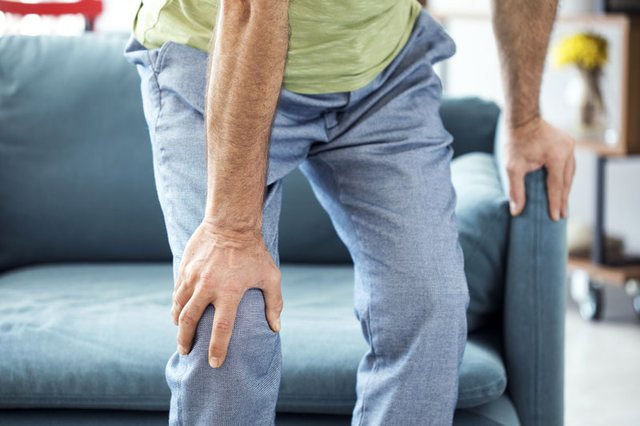
When it comes to physical and health problems, age 50 can be the beginning. You often hear parents or relatives over the age of 50 complaining of bone and muscle pain, and you may find them more nervous than usual. If you are approaching your 50s here are some of the problems you may face and what you can do to avoid them.
Knees
Typically, 50-year-olds may suffer from a range of knee complaints. Shock absorbers in the knees tend to become dehydrated and become stiffer with age and can be more easily damaged after excessive fatigue or any other pressure. Symptoms can be localized pain, swelling of the joints, and blockage when the knees are bent.

What you can do about it:
It happens that when knee pain starts, people avoid movement, but this makes the joints weaken even more, making your problem more complicated.
If you suffer from a knee pain, it is advisable to spend 10 minutes a day doing this exercise: Sitting in a chair, straighten both legs, feeling the tight ankles, then release and repeat 20 times.
Viewing
Another problem encountered at this age is vision. And if you have had a good enough look in your life, at this age the first worries start. With age the lenses of the eye harden and lose elasticity, this creates what is called presbipoa.
What to do about it:
Presbyopia can be easily treated with glasses or contact lenses. Regular visits to the ophthalmologist are essential. Using sunglasses, ultra UV in the sun can help protect against cataracts.
Mind
Those in their 50s may face a stress ‘storm’. You may notice that you worry about the smallest things. Even studies show that people around the age of 50-60 were quite prone to feeling anxious and stressed.
What to do about it: Acknowledge how you are feeling - depression can manifest as anger and irritability, as a passive attitude and despair - talk to someone, whether it is a family doctor or a trusted friend or relative. Try to change your lifestyle, including a little physical activity in your life.
Backache
Back pain is one of the biggest outcomes of working days in a lifetime, which tends to start between the ages of 40 and 60.

What to do about it:
Typically, if you go to the doctor, he will give you anti-inflammatory and / or some muscle relaxants and they can work in the short term.
Try this exercise; position yourself with your arms and knees outstretched on the ground, raise your left arm and right leg, then push down on you and then move on to raising your right arm and left leg. Try three or four sets of 15 to 25 reps.





